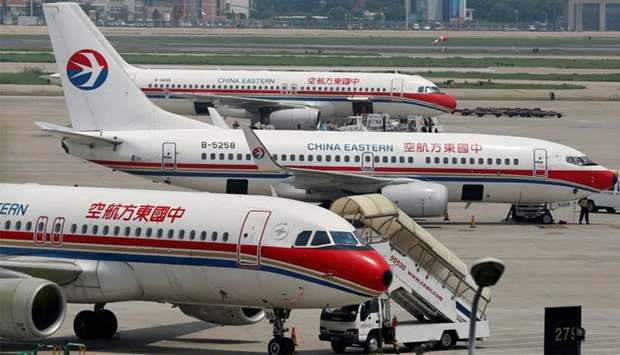China rebuffed Taiwan's objections in a deepening row over the opening of new flight paths in the Taiwan Strait, saying on Wednesday that the space separating routes over the waterway was more than is mandated by international standards.
This month China opened several new air routes, including a northbound route up the sensitive Taiwan Strait that divides China from the island. Taiwan says it was done without its agreement, contravening what the democratic government in Taipei has said was a 2015 deal to first discuss such flight paths.
In response, self-governed Taiwan has withheld approval of routine applications from China Eastern and Xiamen Airlines, majority owned by China Southern Airlines , to add Lunar New Year flights because the airlines had used the disputed air routes.
Taiwan has expressed concern the new routes are too close to existing routes that link it to airports on two groups of Taiwan-controlled islands lying close to China - Kinmen which sits opposite to the Chinese city of Xiamen and the Matsu archipelago near to Fuzhou.
Multiple daily flights connect the islands to mainland Taiwan, while Xiamen and Fuzhou are also busy airports.
Speaking at a regular news briefing, Ma Xiaoguang, spokesman for China's Taiwan Affairs Office, said there was at least 23 km (14 miles) separating the routes.
‘This type of separation far exceeds lateral separation standards in the rules of the International Civil Aviation Organization,’ Ma said. ‘So it can be said that the connecting routes are safe.’
Kinmen and Matsu have both been under Taiwan's control since defeated Nationalist forces fled to Taiwan at the end of the Chinese civil war in 1949.
Frequently shelled by the Chinese during the height of the Cold War, both are now popular tourist destinations and connected to China by ferry.
Kinmen's airport is the busiest, with regular though less frequent flights to Matsu's two airports from Taiwan.
Despite the spat, air traffic controllers from both China and Taiwan continue to communicate and coordinate as normal, Wang Zhiqing, a deputy head of the Civil Aviation Administration of China told a separate briefing.
‘Yesterday I met a relevant official from the International Civil Aviation Organization, and he said the M503 route has been assessed and approved of by them, it's safe and reliable,’ Wang said, referring to the main disputed route.
China considers Taiwan a wayward province, and relations have cooled dramatically since Tsai Ing-wen of the independence-leaning Democratic Progressive Party took office as Taiwan's president in 2016.

